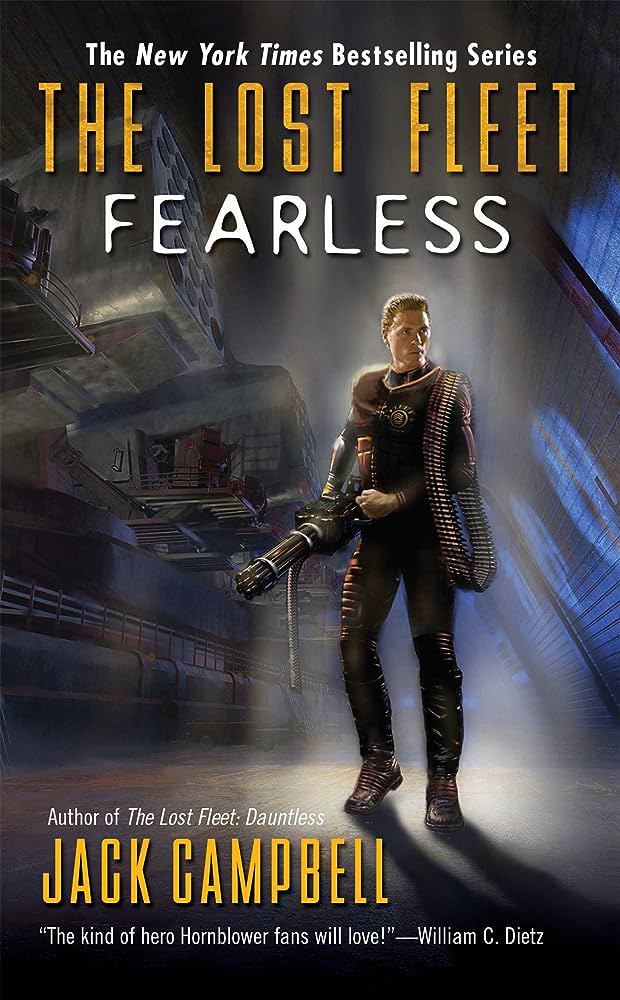Fearless
 The second Lost Fleet novel continues on from the first. It is more of the same: space opera military SF that is well-crafted all the way around.
The second Lost Fleet novel continues on from the first. It is more of the same: space opera military SF that is well-crafted all the way around.
Now, while it is more of the same, Campbell is definitely paying attention to his long-form writing here. The high concept hasn’t changed at all, with a powerful fleet trapped behind enemy lines, with one professional military man working to instill discipline and coordination on an organization that has lost these things.
The main plot theme continues with this. Near the beginning of the book they find a prisoner-of-war camp, and free everyone there, absorbing some much-needed replacements into the fleet. Of course, they end up with a second near-legendary hero with competing ambitions.
This could have set up a good “charisma vs competence” struggle for the novel to hang its non-action moments off of, but that largely gets short-circuited—in a way that still largely defines the plot.
In fact, the weak points of the book are entirely on the personal interaction end. There’s a lot of strong points here too, but there’s some real mishandling going on. To ratchet up tensions, one of the characters who comes across as truly intelligent does not thing important things through. It feels out of character, and is obviously put in just to try complicate Geary’s love life (way too literally) and add a couple more cliffhanger chapter ends.
The oddest bit is the title. Each of the books are named for one of the capital ships in the fleet, which all have fairly traditional names for such. Dauntless is our main character’s flagship, so perfect name for the first book. Fearless gets a few moments of prominence in the big battle near the middle of the book, but is otherwise hardly mentioned. Meanwhile, Furious has a good commander, and ends up as the head of a special task force that is used for some special operations throughout a fair chunk of the book, and would have been a much more appropriate title here.
On the external (i.e., whole series) plot, things move well here, and there is more setup for developments destined for much later on. This is still a fairly light book, which is good because outside of the action, the writing is fairly lightweight, if well-paced. What’s really getting to be needed is for the enemy to stop being completely faceless.

Discussion ¬